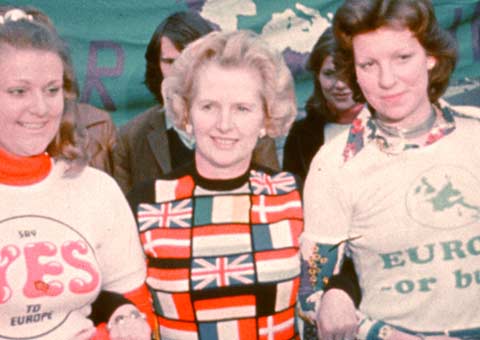In seven weeks time, we are all faced with a choice. Every single one of us who can vote will be asked whether the United Kingdom should remain a member of the European Union.
As decisions go, this is pretty big. As a society, we have become used to having unlimited choice. The degree of choice over how we live our lives, what we buy, what we eat, who we see, is unparalleled in human history. Much of this has been fuelled by advances in technology unthinkable even twenty years ago.
This extends to politics too, albeit on a slower scale. If we vote for a government we come to dislike, we can throw them out again after five years. Councillors, after four years. Even if it takes time, we can always change our political decisions.
Yet if we vote to leave the EU on June 23rd, that will essentially be final. We will have crossed a point of no return. Leaving will be definitive. We can't join and leave every few years just because our politicians and public opinion keep shifting.
So this means that the ball is very much in the Out campaigners court. We have a reasonable idea of what life inside the EU is like. Since 1973 we have been members of the EU and the EEC. If I want to know what life outside is like, however, the only examples are from pre-1973, and are therefore harder to map onto modern Britain.
The burden of proof is therefore on the Leave campaign. How will quitting the EU improve our way of life in the 21st century?
Over the next few weeks, I'm going to analyse the different cases for leaving the EU, as put out by the media, the various Leave campaigns, and various voices on the internet. I see them as being:
- The economic case for leaving
- The diplomatic case for leaving
- The political case for leaving
- The 'gut feeling' case for leaving
As leaving is the greater break, the bigger departure from the status quo, it seems only fair to analyse their claims first. If I get time, I may look at the arguments for remaining. But they are essentially the reverse.
Obviously I come at this with my own set of prejudices, many of which will be known, but hopefully some are still a surprise to some of you. I hope this helps those who are confused by the arguments being hurled around at the moment.
If nothing else, I hope it persuades at least one person who wouldn't otherwise to go and vote on June 23rd. Even if their only reason is to stop me writing another blog post, I feel I will have achieved something.
A symbol of just how topsy turvy EU campaigns can be... From the 1975 referendum. Britain voted 2:1 to stay in the EEC.

No comments:
Post a Comment